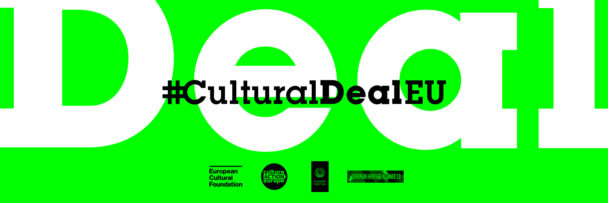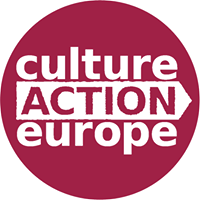While the policy-makers are currently concerned with mapping out the road towards Europe’s sustainable recovery from the COVID-19 pandemic, the European cultural community urges them to include culture as a key component in this process – and beyond. Culture Action Europe, European Cultural Foundation, and Europa Nostra (representing the European Cultural Alliance) jointly proposed a Cultural Deal for Europe framework. This overarching strategy aims at placing culture at the center of the European project and mainstreaming it across all policy fields: from the green transition to Europe’s geopolitical ambition and from the digital shift to a value-driven Union.
What does the Cultural Deal for Europe propose?
- Devoting at least 2% of the EU Recovery and Resilience Facility (RRF) for culture.
- All national recovery and resilience plans must show due evidence of cultural and European relevance.
- Full inclusion of culture in the 2030 Sustainable Development Agenda and the European Green Deal.
- Make sure funding for culture is mainstreamed into other relevant EU programmes and actions.
- Relevant and timely support to cultural workers.



 The European Commission launched a public consultation on the development of a European Democracy Action Plan (EDAP). On September 14th Culture Action Europe and many other European networks and institutions welcomed the initiative and called the Commission in an open letter to reflect in it especially the status of the freedom of artistic expression as a fundamental aspect of cultural rights. The letter submits the following recommendations to the Commission:
1. Explicitly recognize freedom of expression in all its forms.
2. Develop appropriate instruments at EU level whereby artistic freedom can be monitored and assessed as one of the legitimate indicators of democratic and cultural health.
3. Foresee a facility through which artists can report violations of their fundamental rights and access support for their legal assistance and relocation.
4. Establish an EU mechanism on democracy, the rule of law, and fundamental rights, including artistic freedom.
Read the complete letter
The European Commission launched a public consultation on the development of a European Democracy Action Plan (EDAP). On September 14th Culture Action Europe and many other European networks and institutions welcomed the initiative and called the Commission in an open letter to reflect in it especially the status of the freedom of artistic expression as a fundamental aspect of cultural rights. The letter submits the following recommendations to the Commission:
1. Explicitly recognize freedom of expression in all its forms.
2. Develop appropriate instruments at EU level whereby artistic freedom can be monitored and assessed as one of the legitimate indicators of democratic and cultural health.
3. Foresee a facility through which artists can report violations of their fundamental rights and access support for their legal assistance and relocation.
4. Establish an EU mechanism on democracy, the rule of law, and fundamental rights, including artistic freedom.
Read the complete letter 